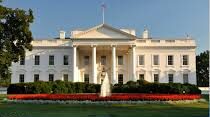In a sweeping legislative move, the White House has declared the One Big Beautiful Bill (OBBB) a historic investment in rural healthcare. The bill, signed into law on July 4, introduces the Rural Health Transformation Program, a $50 billion initiative aimed at revitalizing underserved medical systems across America’s heartland.
At its core, the program seeks to break the cycle of neglect that has long plagued rural hospitals — many of which operate with low occupancy rates and limited funding. Unlike legacy programs that tie support to service volume, the OBBB offers flexible, innovation-driven funding to help facilities adapt, modernize, and survive.
States must submit detailed transformation plans to the Centers for Medicare & Medicaid Services (CMS), outlining how they’ll use the funds to improve access, outcomes, and sustainability. CMS will monitor implementation, ensuring resources reach the most deserving — not the most politically connected.
“This is not just a bill. It’s a blueprint for rural resilience,” said a senior White House official.
Despite praise from the administration, critics argue the bill’s broader cuts to Medicaid and SNAP could offset gains for vulnerable communities. The White House counters that the OBBB targets waste, fraud, and abuse, redirecting funds to where they’re needed most.
TWW - The World Wide: Global News,Local Impact.

